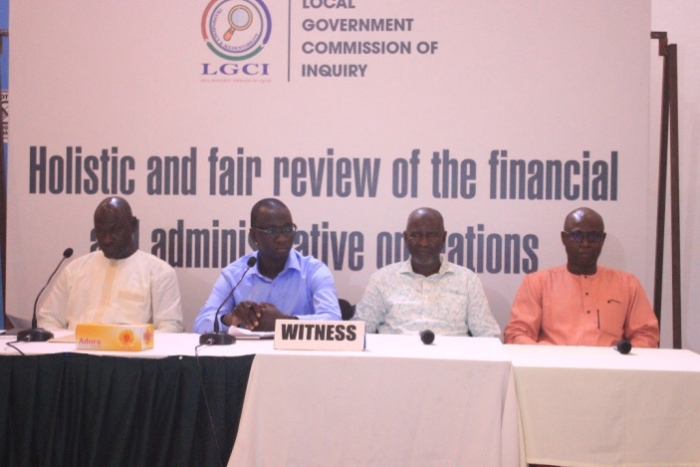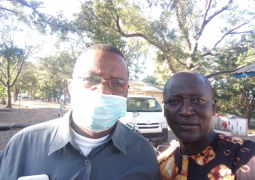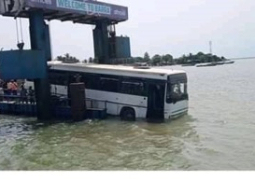
Testimonies from former and current GPPA officials revealed that the authority was effectively used to retroactively legalise a multi-million dalasi deal with 5C Energy, raising serious questions about transparency, adherence to procurement regulations, and institutional oversight.
The former director general of the Gambia Public Procurement Authority (GPPA), Saloum Malang, and three other former and current officials of GPPA faced scrutiny over the 2020 procurement of waste collection trucks by the Brikama Area Council (BAC), amid revelations of questionable approvals, bypassed regulations, and backdoor dealings.
Testifying before the Local Government Commission of Inquiry (LGCI) alongside with the current and former officials, Malang admitted he had approved the BAC's procurement request without a market survey. He justified his decision by relying on the act on some of the justification on the documents submitted by the council, including a letter claiming that only one supplier, 5C Energy, was available for the contract also citing post-COVID pandemic and health concerns.
However, the lead counsel, Patrick Gomez, challenged that justification, noting that the procurement was not an emergency and that health risks from waste collection delays were foreseeable and not sudden. More critically, there was no evidence to support the claim that 5C Energy was the sole supplier capable of providing the trucks.
“Any transaction of that amount should be subjected to competition,” Malang admitted during questioning, but insisted he acted in good faith based on submissions from BAC.
Modou Jonga, then CEO of BAC, admitted after intense questioning that the council had already engaged in negotiations with 5C Energy months before formally seeking GPPA approval. In fact, the trucks were already imported into the country based on a verbal agreement, long before the official procurement process began. Jonga confirmed that the company had paid $140,000 representing 70 percent of the cost for the trucks as early as 2019.
Lead Counsel Gomez confronted Jonga with a September 2020 council meeting minute that revealed no formal negotiations or consultations were conducted before the purchase directly contradicting the council’s later claims. The minute also showed that the BAC chairman travelled to China to discuss the truck deal with 5C Energy before any letter was sent to GPPA requesting procurement approval. When pressed, Jonga said he could not initially recall the trip but later confirmed it after being referred to the minutes, which revealed that the chairman went without submitting a report or documentation upon his return.
“Why would you engage 5C without waiting for GPPA approval?” Gomez asked. “Everything should have been a formality because 5C were already engaged,” Jonga admitted.
Further scrutiny revealed internal failures at GPPA. Key documents lacked signatures from the Director of Procurement Policy, the Compliance Manager, and other technocrats who were essential in reviewing procurement requests. Ebrima Sanyang, Director of Procurement Policy, confirmed that the normal process was not followed, stating his office did not see or sign the relevant documents. He said under standard procedure, the procurement request should move from the Director General to the Deputy, then to technocrats for input. In the case of the BAC and 5C deal, this was not done. His own signature and that of the manager responsible for compliance were missing from both applications reviewed by GPPA.
Tambura, another GPPA director, said he did see the file and minuted it to the action officer for review, but acknowledged that proper procedures may not have been followed. When asked if the method of approval was appropriate, Tambura said circumstances vary and referenced COVID-19 as a justification for handling the matter differently.
Despite the COVID-19 justification raised by Malang and some GPPA officials, the lead counsel reminded them that the issue of poor waste management in Brikama was not new and was well-known prior to 2020. Gomez further argued that the legal provision for single-sourcing based on emergencies only applies to genuine, unforeseeable disasters not ongoing and predictable issues like those at the BAC.
Jallow, a former trained officer at GPPA who handled the BAC file, contradicted Malang’s reasoning when she was asked to explain the conditions for single-sourcing. She correctly outlined that single-sourcing is limited to scenarios involving monopolies or natural disasters, not situations like BAC’s.
Gomez questioned whether GPPA had received any evidence showing 5C was the only supplier. Malang responded that he did not see any market survey in the file and admitted he was not aware of the importance of conducting one. “Market survey is basic. You should have known that,” Gomez responded.
Jallow admitted that the only way the authority could have confirmed the exclusivity of 5C was through a market survey which was never done.
She also said her own approval was based on the understanding that the missing documents would be submitted, not that all procurement rules had been met.
Gomez then pressed the point that BAC’s procurement request to GPPA came after trucks were already imported and after an agreement albeit verbal had been reached with 5C Energy. In a letter dated 14 August 2020, Jonga wrote to GPPA requesting approval, even though the council was already in “advanced negotiations” with the company. Gomez pointed out that it was clear GPPA was being used to retroactively legalise a decision already taken by BAC. Jonga eventually agreed that the agreement with 5C Energy was entered into before the procurement request was even submitted.
During further questioning, Malang repeatedly said his decision was based on discretion and the need to avoid a health crisis following the COVID-19 pandemic. However, the lead counsel countered that such discretion must still fall within legal frameworks and the procurement regulations. When asked if he had any evidence that 5C Energy had previously supplied trucks to other institutions or councils, Jonga admitted he had never heard of such a case.
The GPPA officials ultimately agreed that there should not have been an approval under the circumstances. Malang claimed he merely received files and acted based on the advice of technocrats. “If I had known this process started before I came, I would not have approved it,” he admitted.
Read Other Articles In Headlines
Court rules Yanks must testify in his murder trial
Aug 25, 2020, 3:57 PM

‘Local capacity and knowledge in mitigating Climate Change, a necessity’
Jan 14, 2021, 1:17 PM


